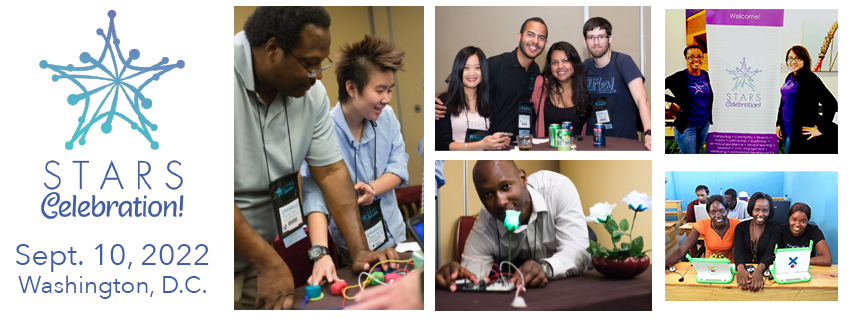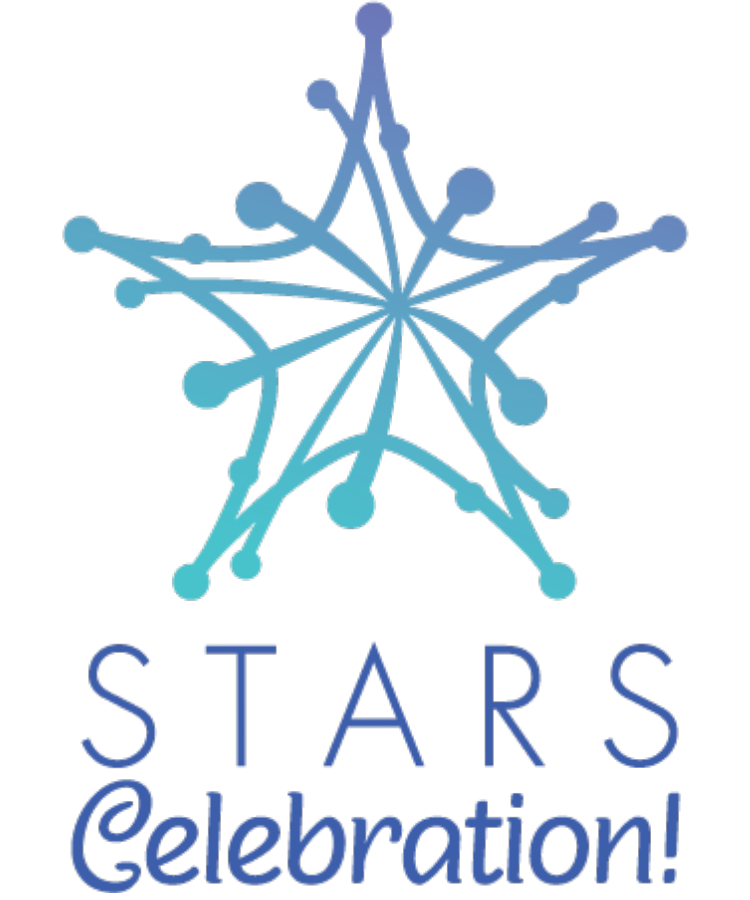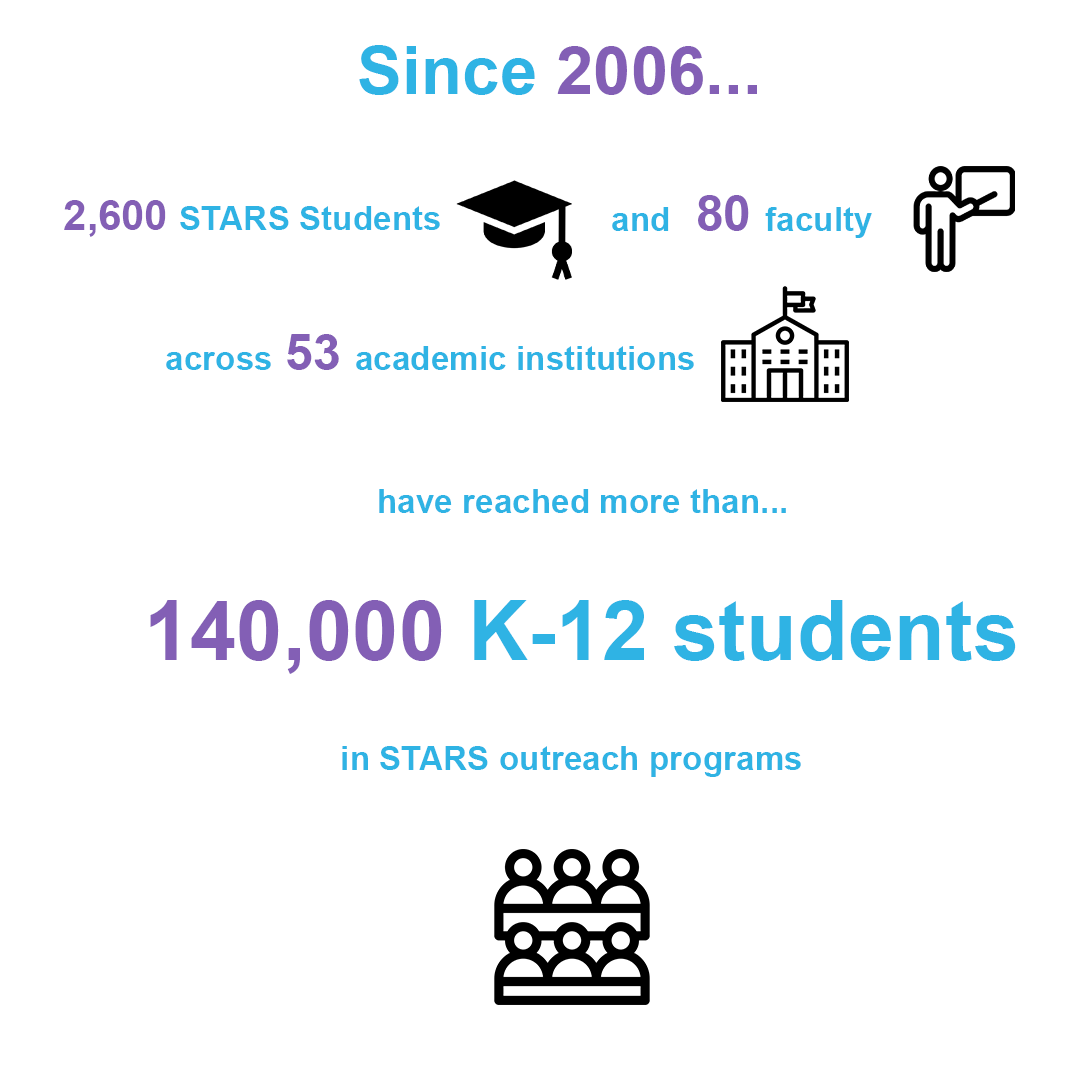
a leadership & professional development conference
for college students and faculty who are interested in
taking action to broaden participation in computing
Saturday, September 10th 2022
>> The Celebration
The STARS Celebration conference program features sessions on best practices in broadening participation in computing, hands-on training (virtual for 2021) workshops for conducting computer science outreach programs for K-12 students, and professional development sessions for both faculty and students. The STARS Celebration conference also serves to build and sustain the STARS Computing Corps (STARS) community.
>> What is STARS?
STARS is an NSF-funded alliance of more than 50 colleges and universities with a mission to develop college students and faculty as leaders who broaden participation women, underrepresented minorities, and persons with disabilities in computing. STARS student members take an active role in broadening participation in computing and develop their technical skills by leading service learning projects, including near-peer outreach that introduces K-12 students to computing as well as within-department peer tutoring, mentoring, and research collaborations.
>> Interested? The STARS Celebration welcomes existing members of the STARS Computing Corps, as well as newcomers! Anyone who is interested in in learning about how to take action and connect to national resources for broadening participation in computing are welcome.
>> Join us for STARS Celebration 2022!
Saturday, September 10th, 2022 – co-located with the Richard Tapia Celebration of Diversity in Computing!
Registration is open!
All who are interested in supporting a commitment to leading the STARS Leadership Corps program at your institution are welcome to attend!
Registration is $75 per person. Register by Sept. 1, 2022.
Faculty and student teams can apply for registration waivers or limited travel & participation support. Apply by August 1, 2022.
This material is based upon work supported by the National Science Foundation (NSF) under Grants CNS-2023391. Any opinions, findings, and conclusions or recommendations expressed in this material are those of the author(s) and do not necessarily reflect the views of the National Science Foundation.


